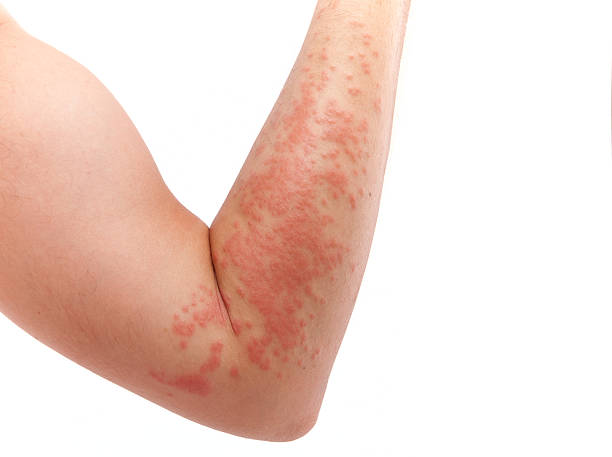
Skin allergies can be a frustrating and uncomfortable condition to deal with. The itching, redness, and inflammation that often accompany skin allergies can greatly impact one's quality of life. While there are various treatment options available, some people are turning to acupuncture as a natural way to alleviate skin allergies. Acupuncture, an ancient Chinese healing practice, is believed to help restore the body's balance and promote overall well-being. Let's explore how acupuncture skin allergy can be beneficial in treating skin allergies.
The Basics of Acupuncture
Acupuncture is a key component of traditional Chinese medicine that has been around for thousands of years. It involves the insertion of thin needles into specific points on the body to stimulate energy flow and promote healing. According to traditional Chinese medicine principles, blockages in the flow of energy, or qi, can lead to various health issues, including skin allergies.
How Acupuncture Helps Alleviate Skin Allergies
When it comes to treating skin allergies, acupuncture focuses on addressing the underlying imbalances in the body that may be contributing to the allergic reactions. Here are some ways in which acupuncture can help alleviate skin allergies:
- Regulates the immune system: Acupuncture is believed to help regulate the immune system, which plays a crucial role in the body's response to allergens.
- Reduces inflammation: By promoting better circulation and reducing inflammation, acupuncture can help alleviate the redness and swelling associated with skin allergies.
- Relieves itching: Acupuncture treatment may help reduce itching by targeting the nerve pathways involved in transmitting the sensation of itchiness.
- Promotes relaxation: Stress and anxiety can exacerbate skin allergies. Acupuncture can help promote relaxation and reduce stress levels, which may in turn help improve skin condition.
What to Expect During an Acupuncture Session
If you decide to try acupuncture to alleviate your skin allergies, here is what you can expect during a typical acupuncture session:
- Consultation: The acupuncturist will discuss your medical history, skin allergies, and any other relevant information before designing a treatment plan.
- Needle insertion: Thin, sterile needles will be inserted into specific acupuncture points on your body. You may feel a slight tingling sensation or dull ache during this process.
- Relaxation: You will be asked to relax and lie still for the duration of the session, which typically lasts around 30 to 60 minutes.
- Follow-up: Depending on your skin condition and response to treatment, the acupuncturist may recommend a series of sessions for optimal results.
Additional Tips for Managing Skin Allergies Naturally
In addition to acupuncture, there are several natural remedies and lifestyle changes that can help manage skin allergies and promote overall skin health. Here are some tips to consider:
- Follow a healthy diet rich in antioxidants and omega-3 fatty acids to support skin health.
- Avoid common allergens and irritants that may trigger skin allergies, such as certain foods, fragrances, and harsh skincare products.
- Practice stress-reducing activities like yoga, meditation, or deep breathing exercises to help keep your stress levels in check.
- Stay hydrated by drinking plenty of water throughout the day to maintain skin hydration.
- Consider incorporating natural remedies like aloe vera, chamomile, or calendula to soothe and heal irritated skin.
Consulting a Qualified Acupuncturist
Before starting acupuncture treatment for your skin allergies, it is essential to consult a qualified acupuncturist who has experience in treating allergic conditions. Here are a few tips to help you find the right acupuncturist:
- Check credentials: Make sure the acupuncturist is licensed and certified by a reputable acupuncture board or organization.
- Ask for recommendations: Seek recommendations from friends, family, or healthcare professionals who have experience with acupuncture.
- Schedule a consultation: Meet with the acupuncturist beforehand to discuss your skin allergies, treatment options, and any concerns you may have.
- Trust your instincts: Choose an acupuncturist whom you feel comfortable with and who takes the time to listen to your needs and preferences.
Acupuncture offers a natural and holistic approach to alleviating skin allergies by targeting the root cause of the issue and promoting overall well-being. If you are considering acupuncture as a treatment option for your skin allergies, be sure to consult a qualified acupuncturist to discuss your options and create a personalized treatment plan.